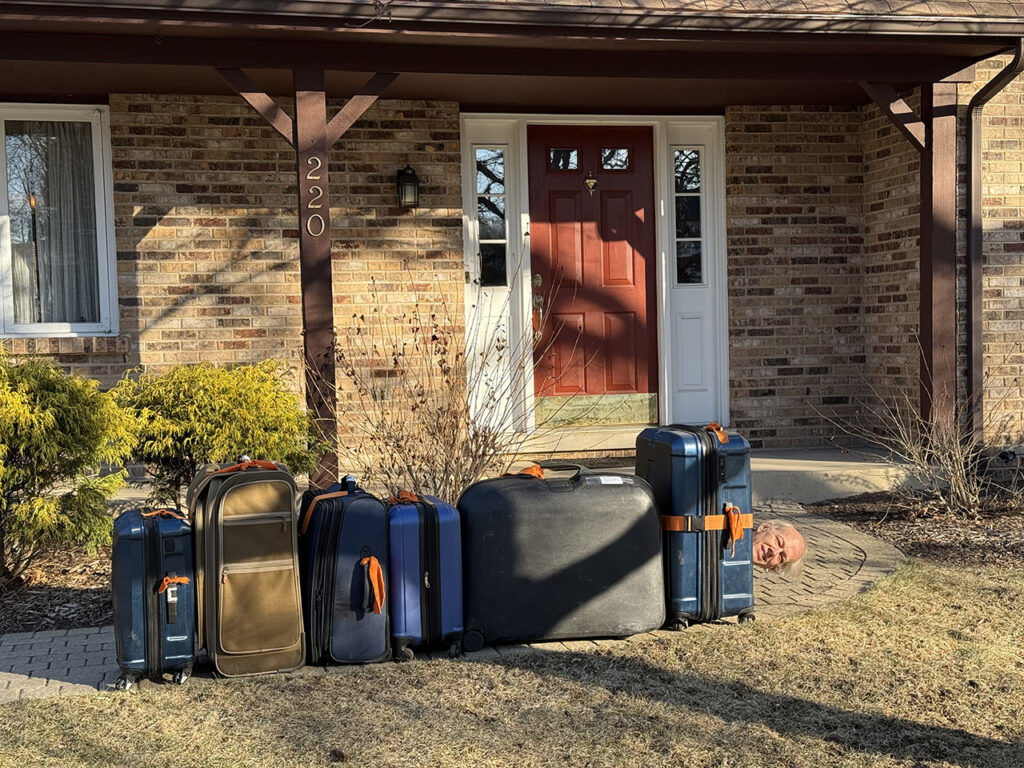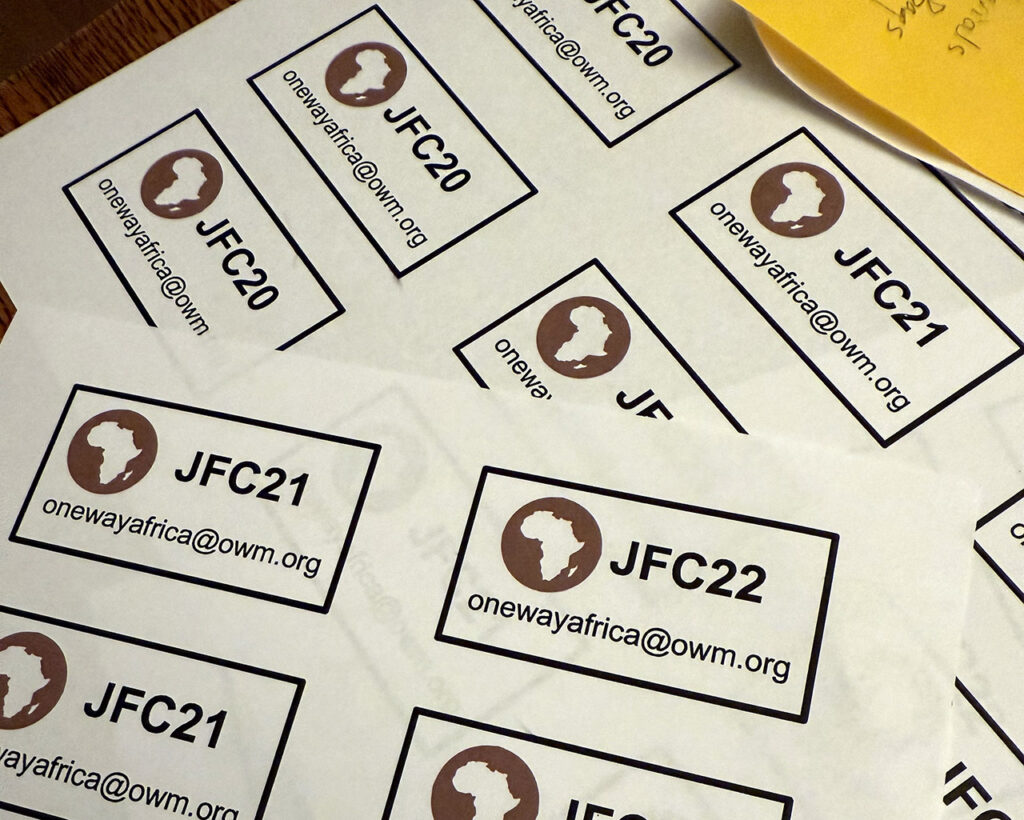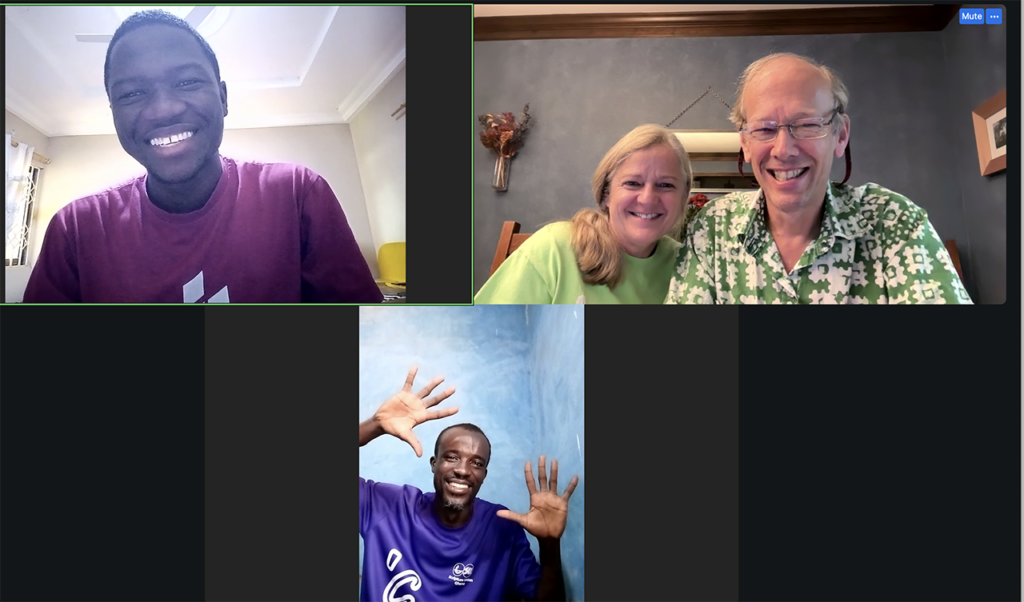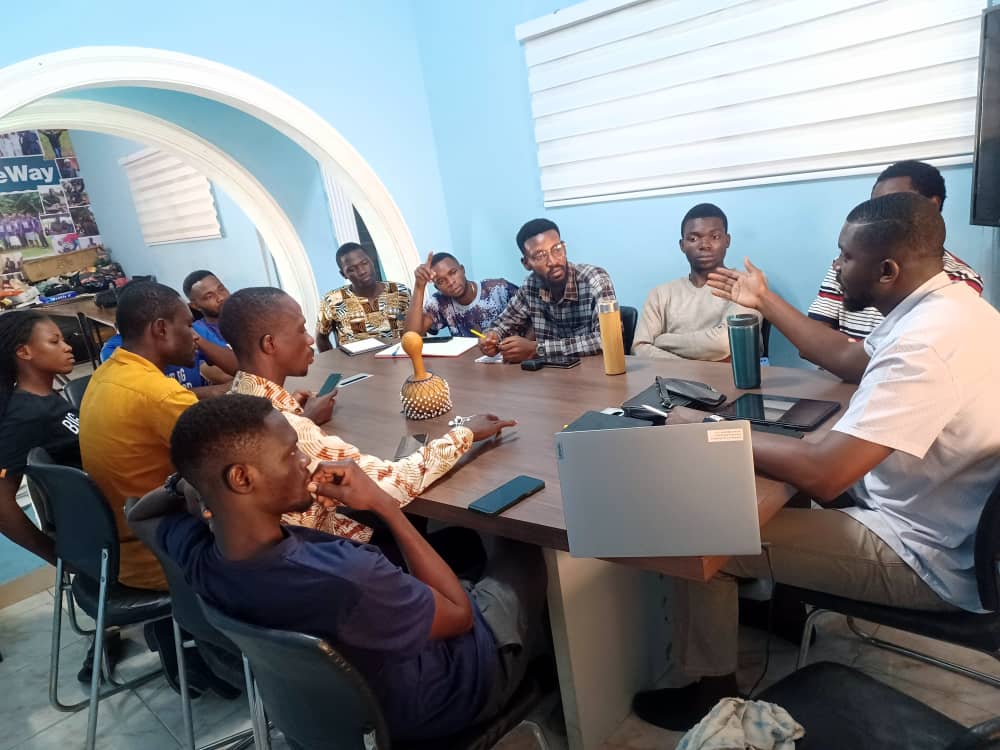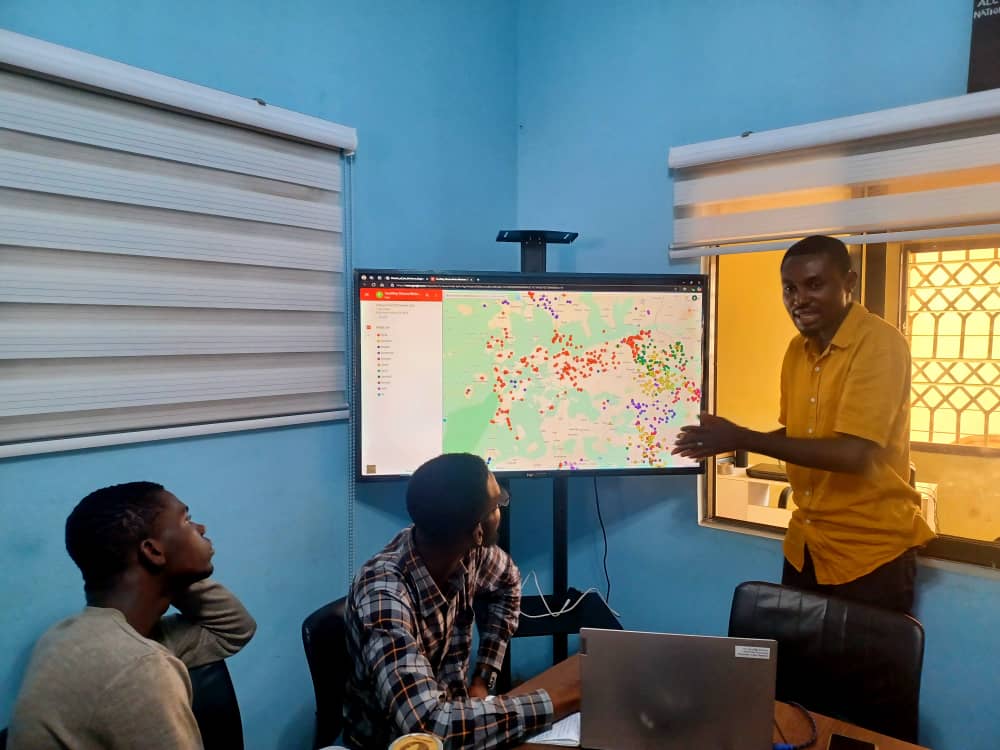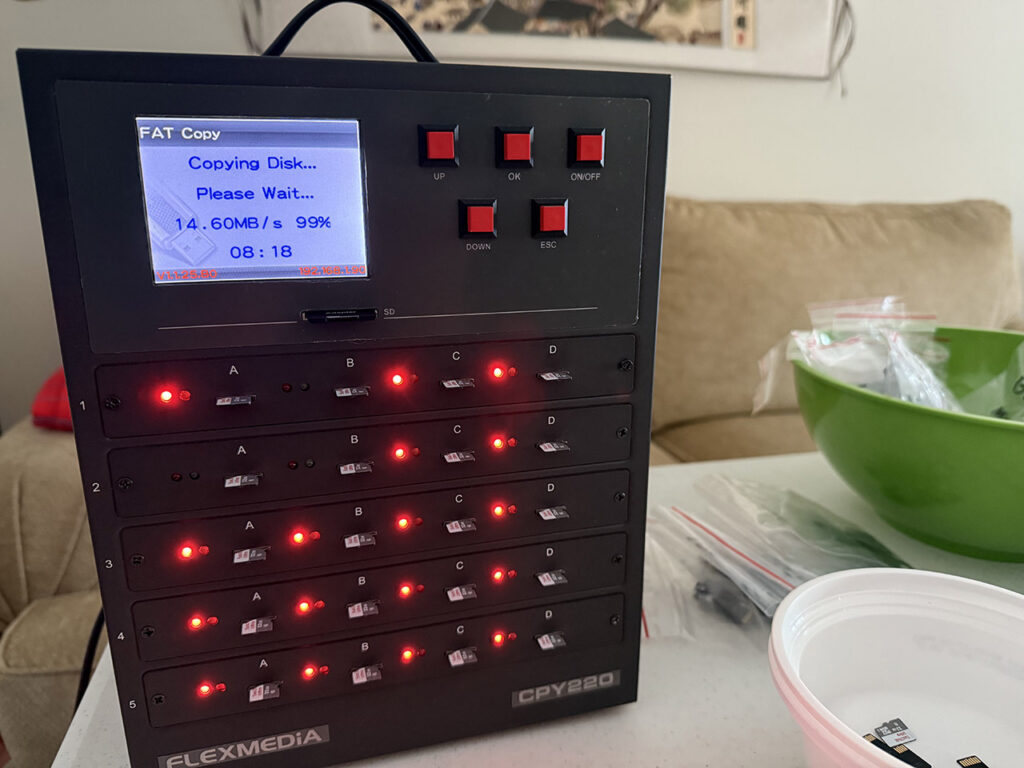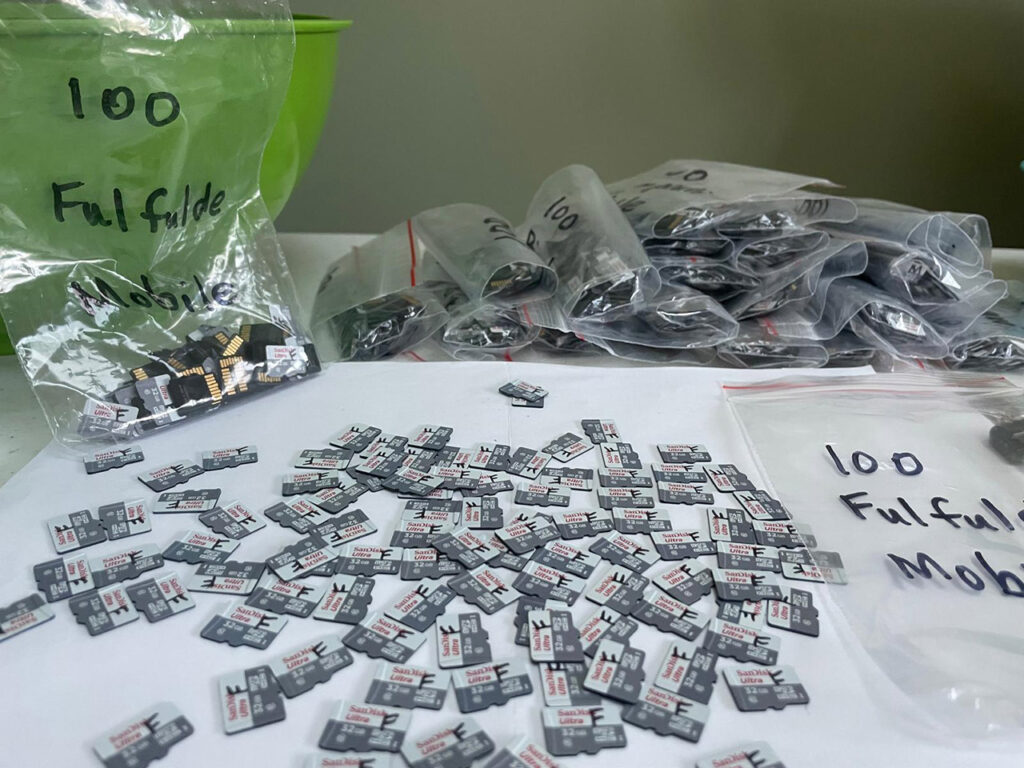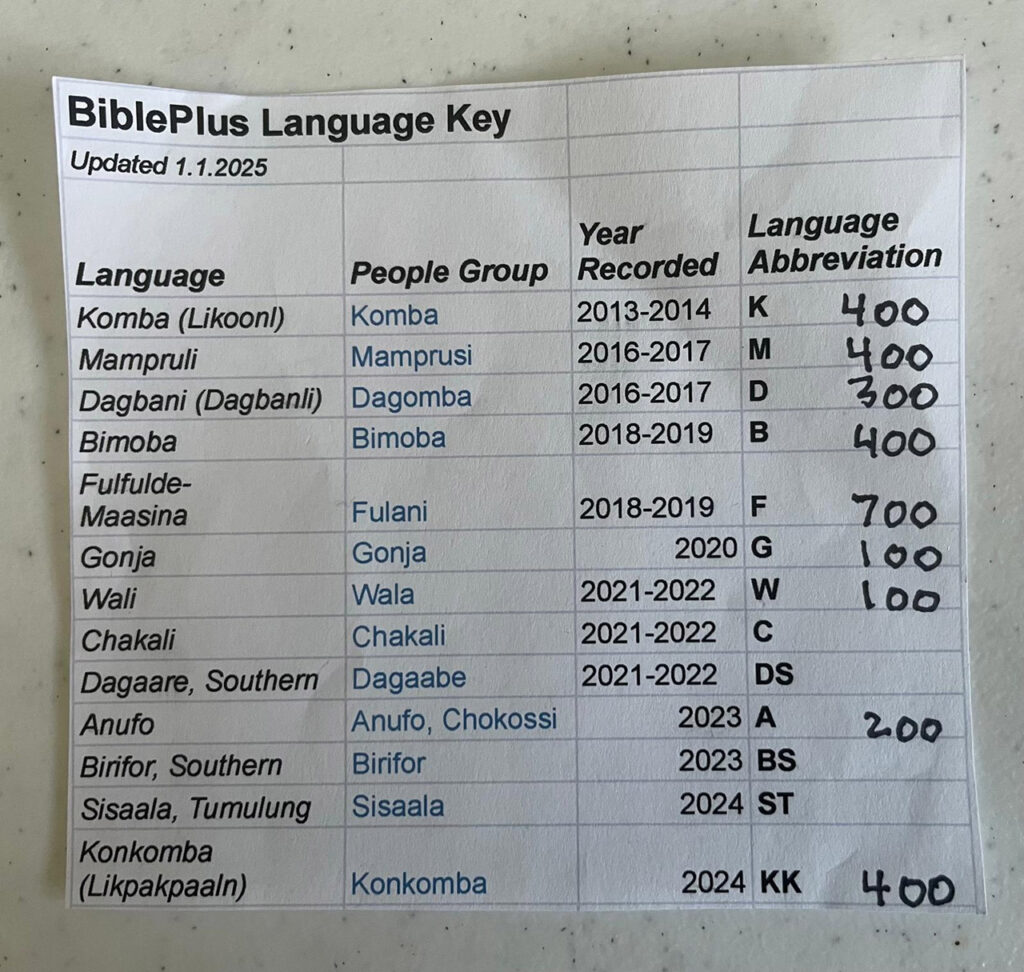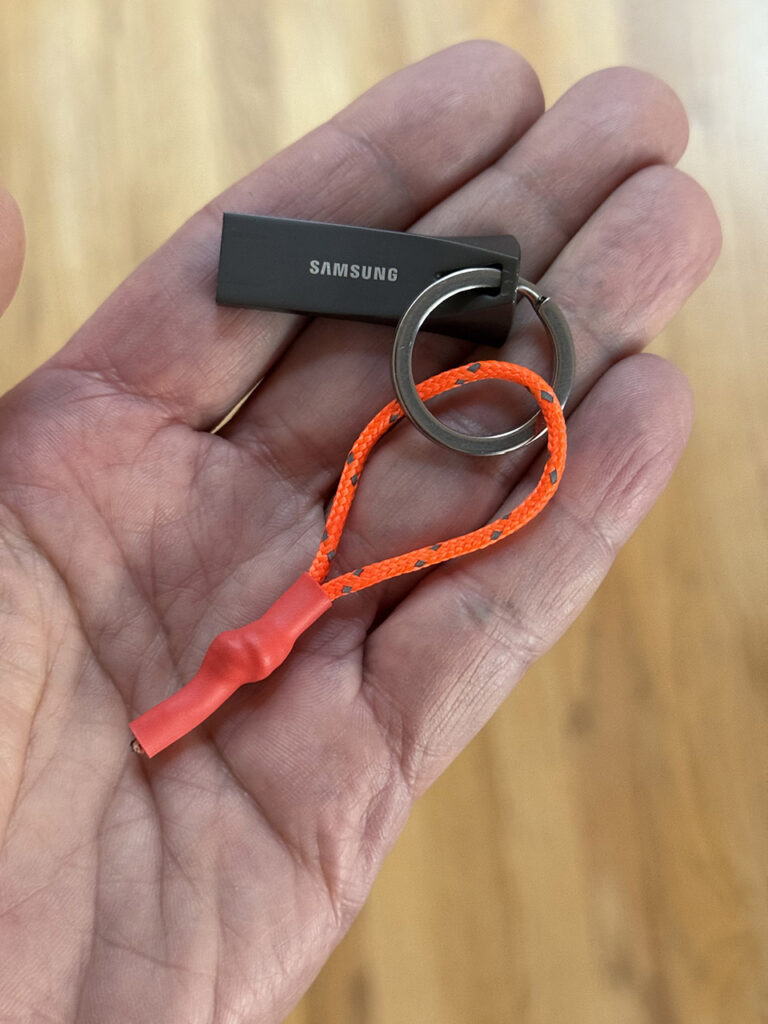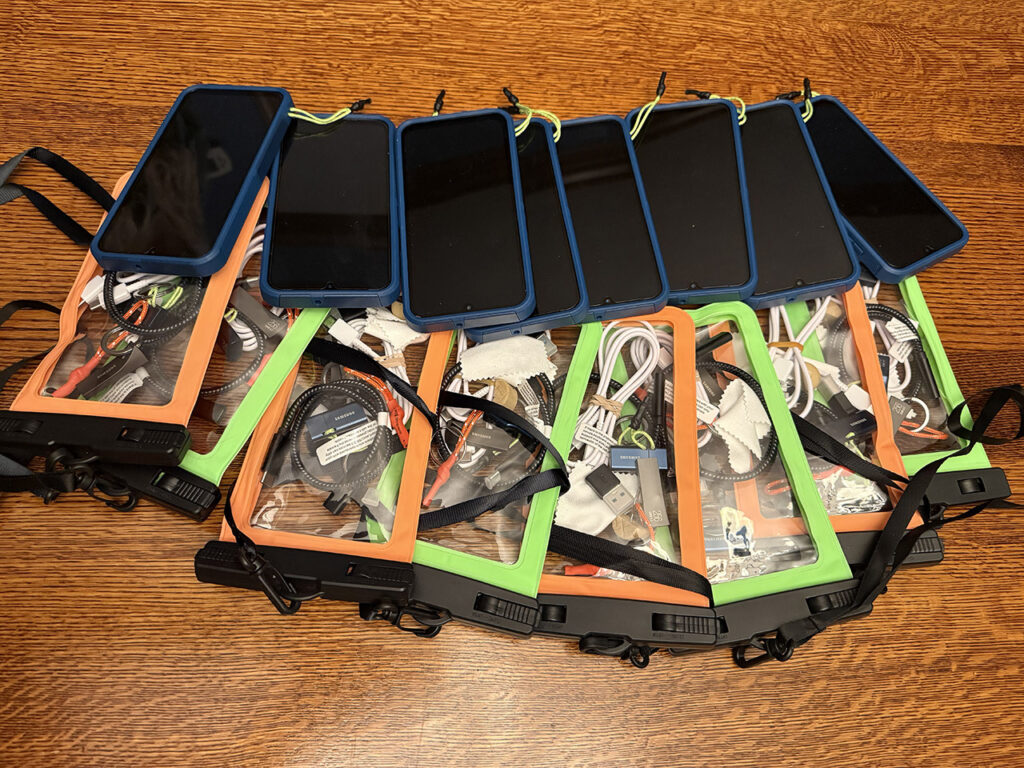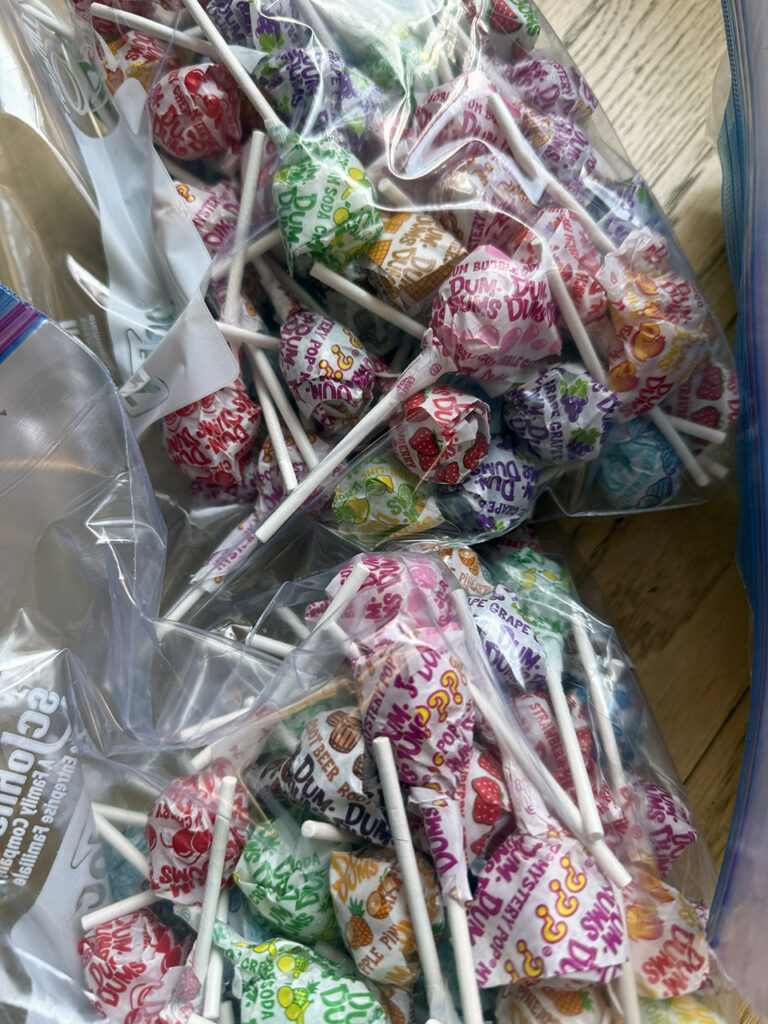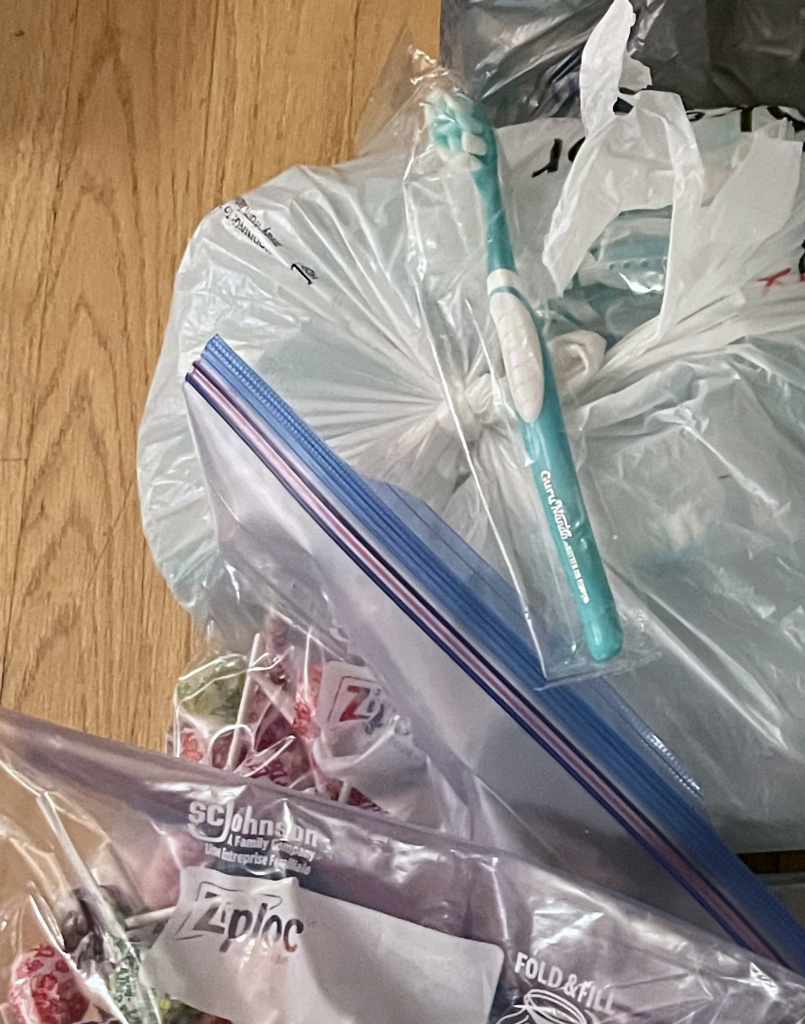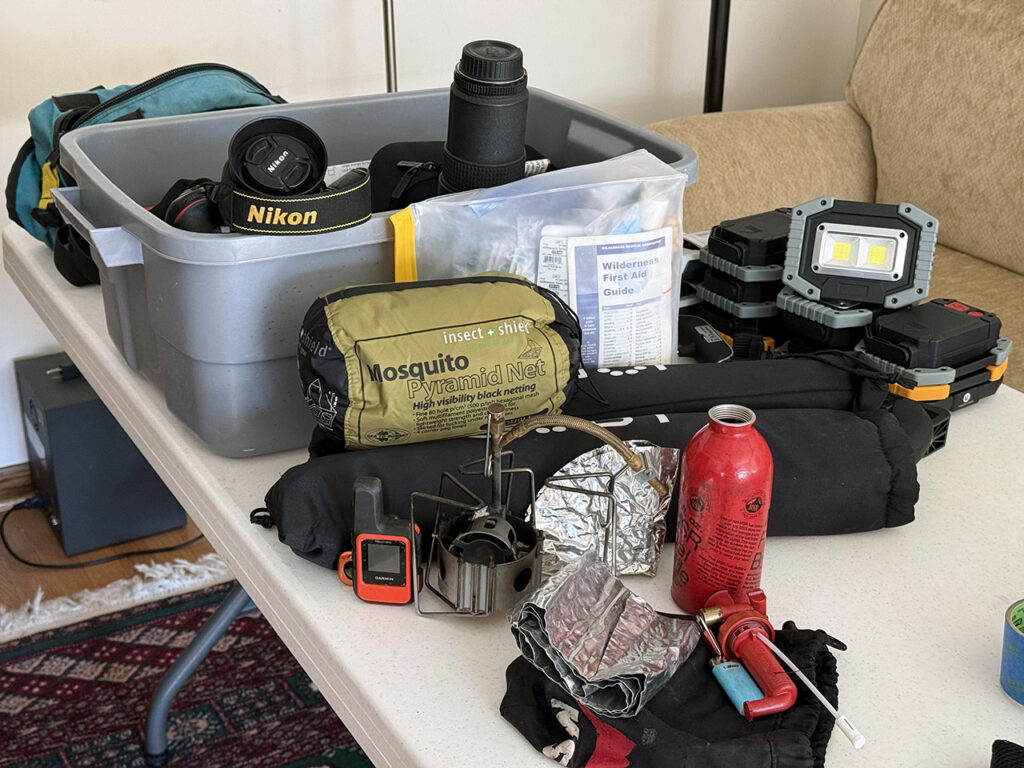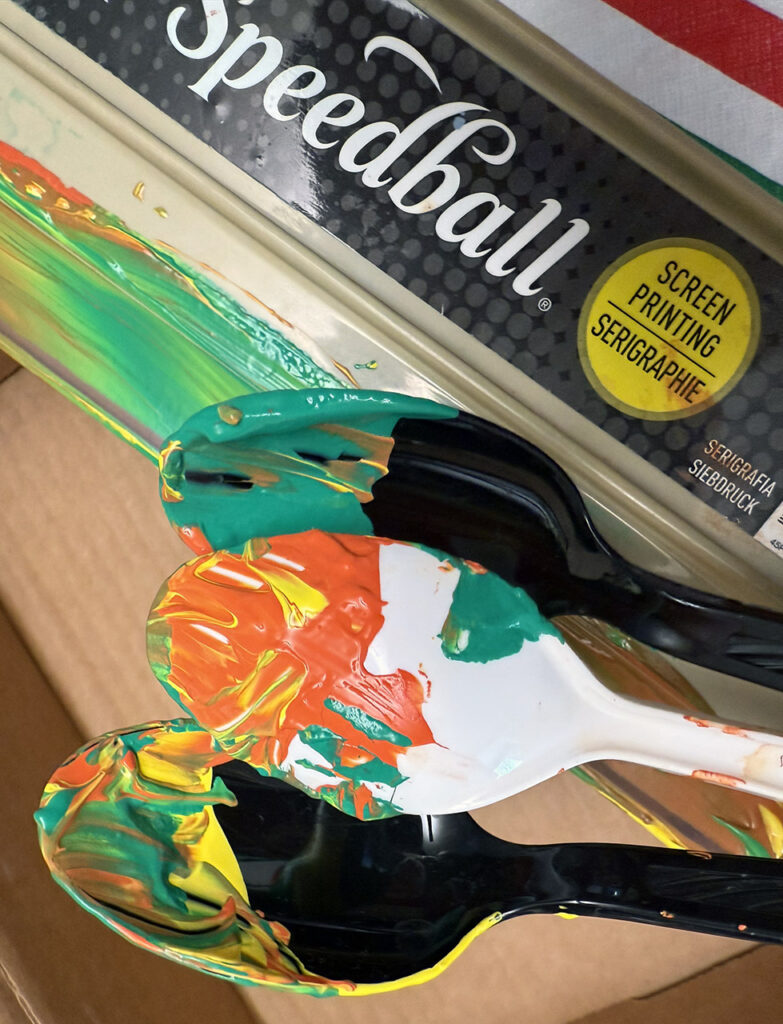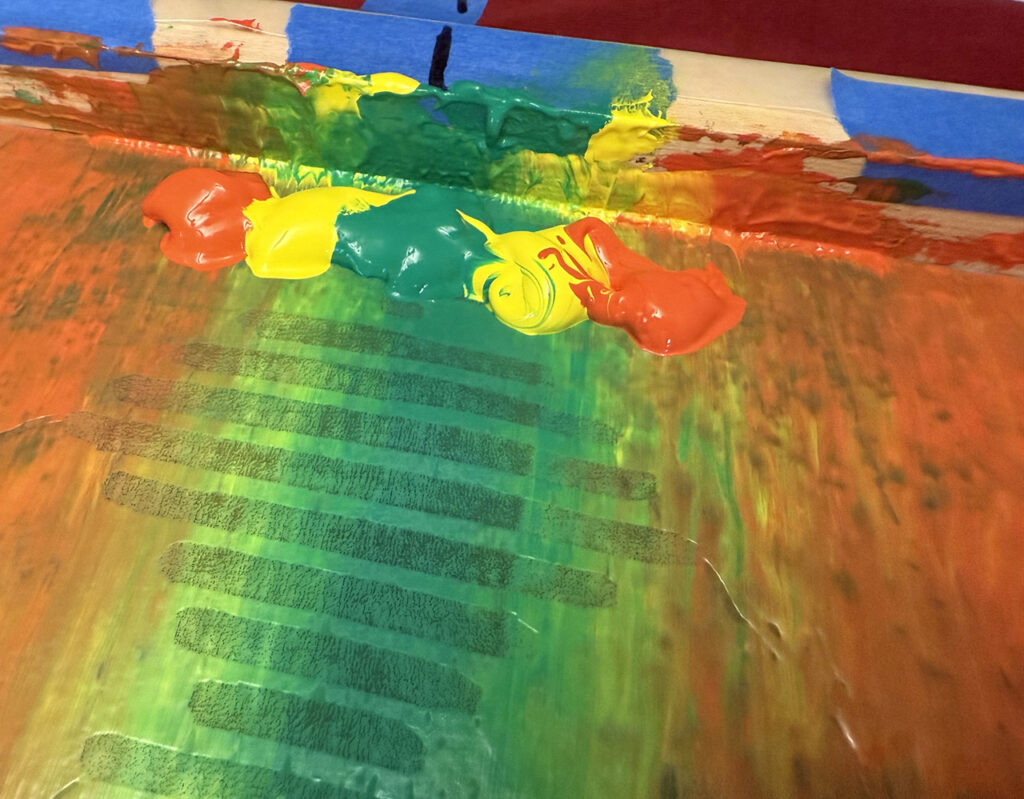We arrived in Ghana 17 hours late, at 1:00am. In Washington DC, our plane was “overnighted” with a mechanical issue. Our plans were already changing, and the colors and sounds of Ghana were still on a distant continent. Nevertheless, one thing has not changed — the biggest smiles and hugs were waiting for Beth and I as we pushed carts piled high with gear out of the airport and into the warm night air. Cyrus and Jacob were not discouraged by our arrival time.
The pickup truck, filled with 50-pound suitcases, was also full of excited chatter as we sped down the traffic-free highway and caught up on events since we were here 9 months ago. By 2:30am Beth and I were trying to wind down and get to sleep.
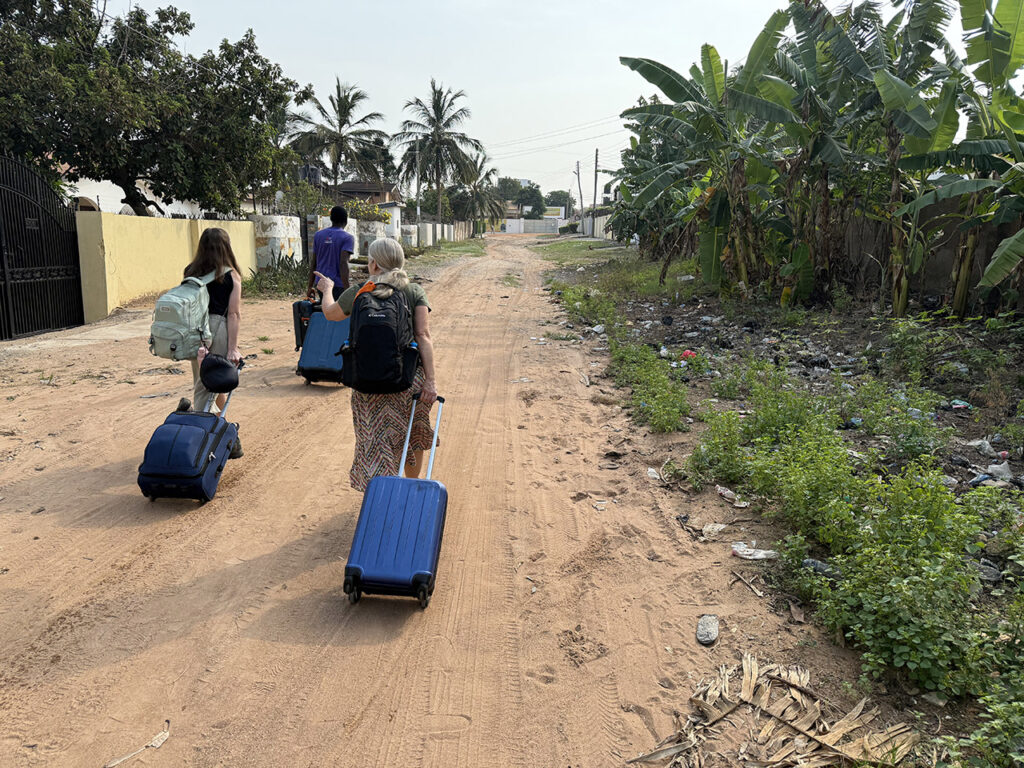
Early the next the morning, we dragged our bags to the Philip Center offices where the staff was beginning to gather. A joyful reunion, this time in the daylight, echoed between the concrete walls and tile floors. The laughter was followed by singing; earnest voices were joined by drums and possibly some tears as we thanked God for bringing us all together and prayed for the work to come.
But our time was short. We needed to quickly begin driving north. While many times are flexible in Ghana, we needed to be in Nkwanta by 8pm.
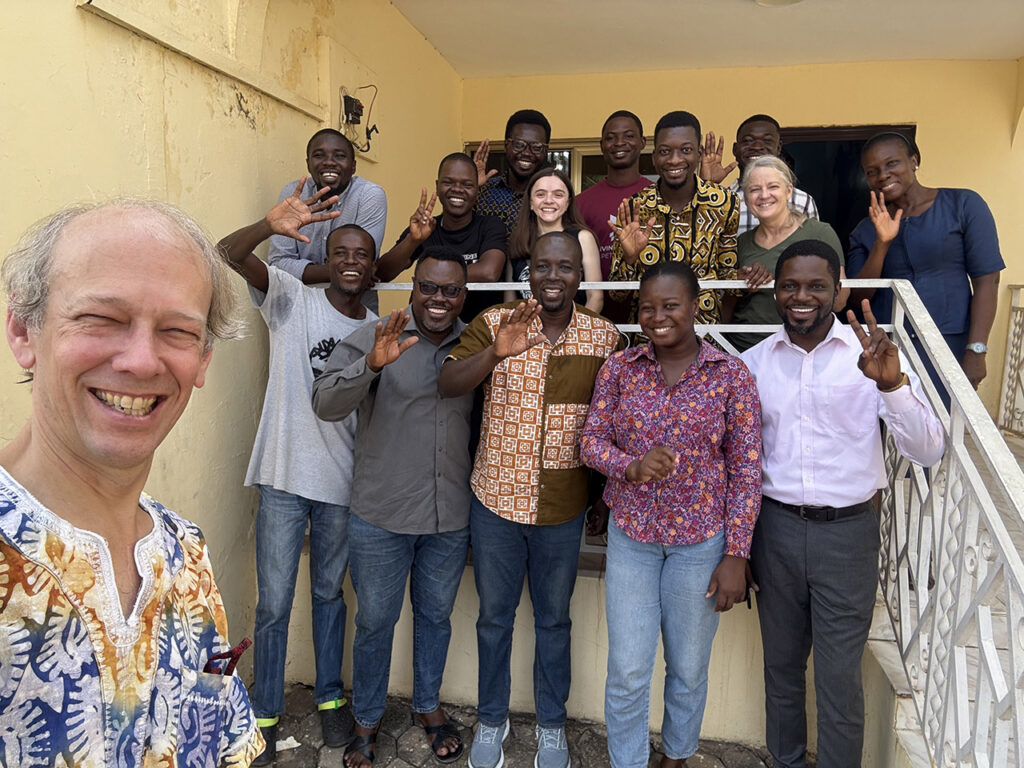
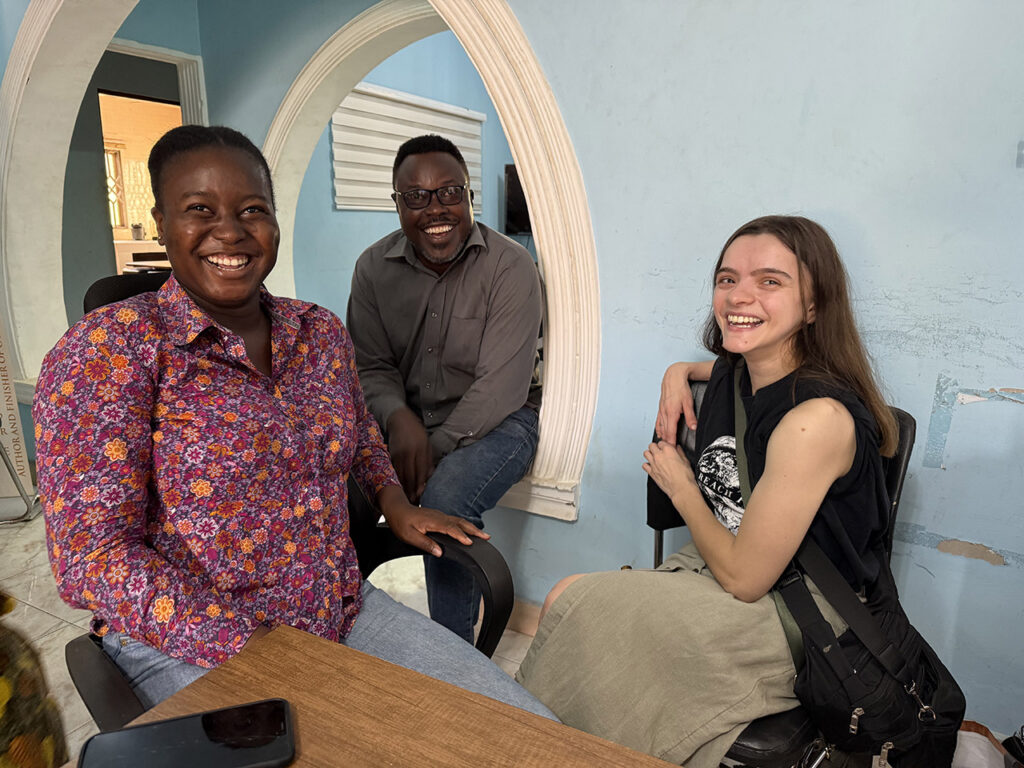
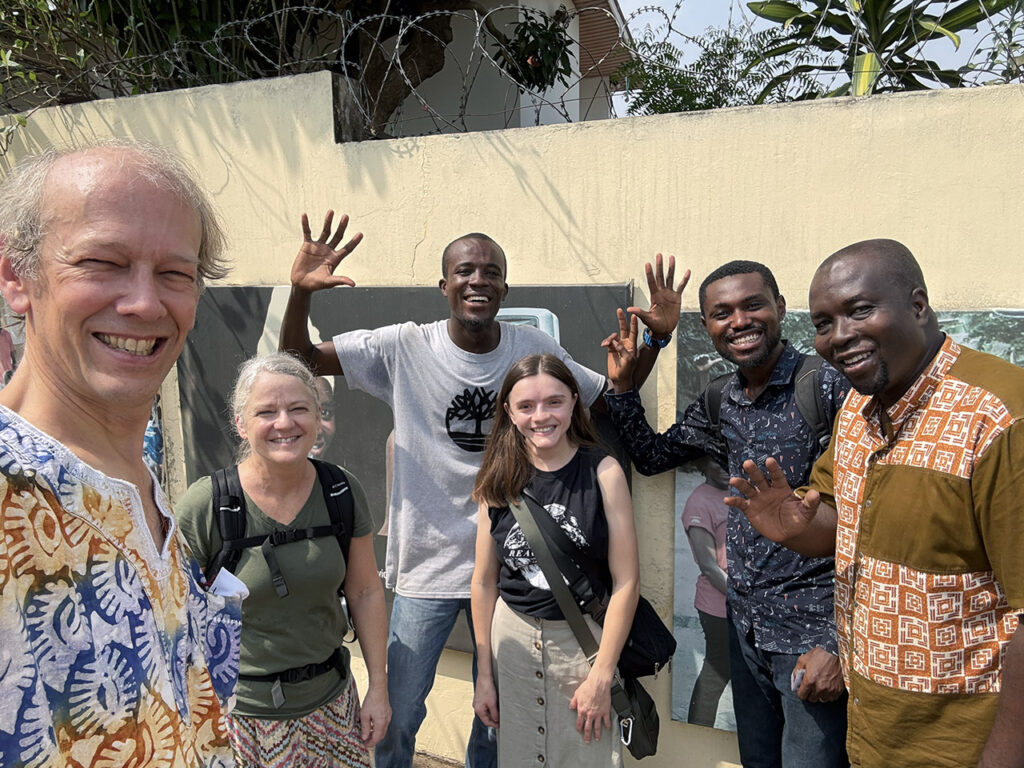
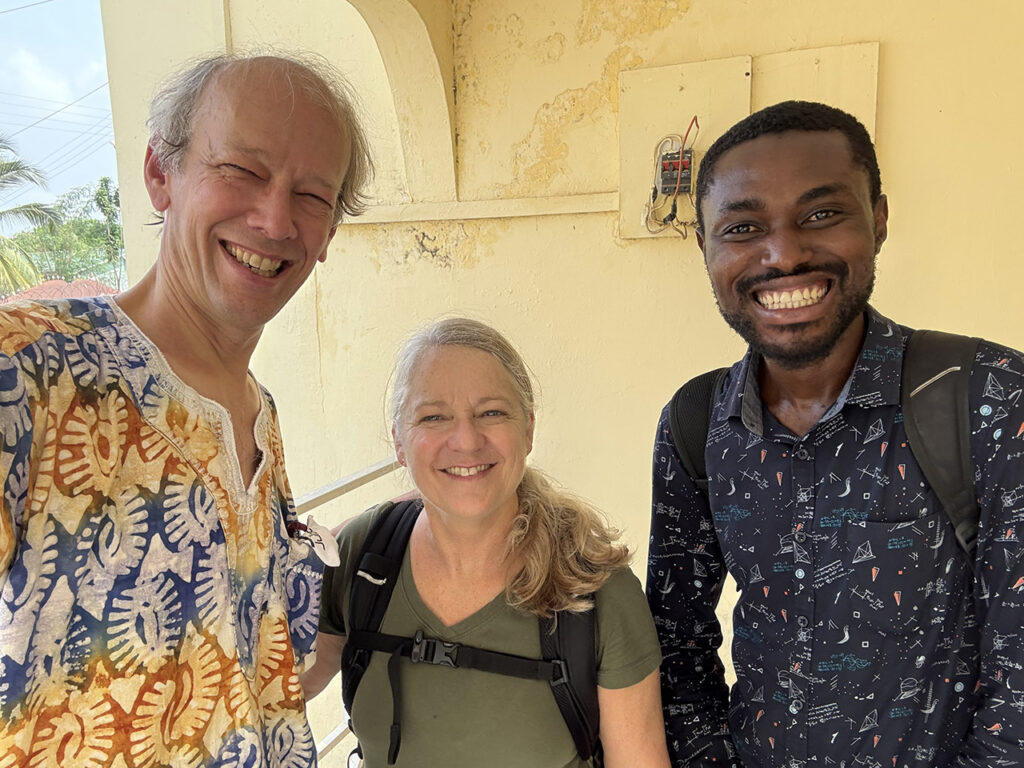
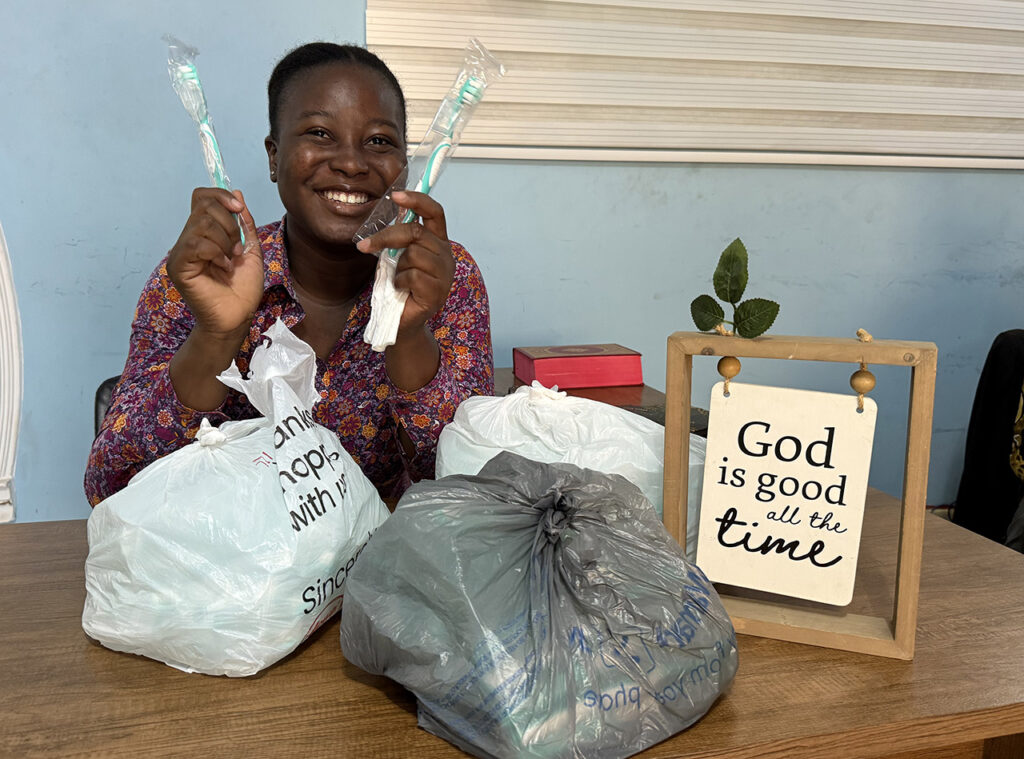
The original plan was to drive north together, in two trucks. But one of the trucks was having some difficulty, and Ray was going to take it to the shop. Cyrus, Clement, Marianne, and Beth and I hopped in the new truck and started north. The drive was very smooth and fast in many places, but then non-existent in others. Ray stayed behind and planned to follow later.
I quickly remembered how to drive in Ghana. Motos sped by on the left and right, and small three-wheeled yellow-yellows zigged across traffic. Tro-tros stopped unpredictably, picking up passengers who waved for a ride. Over the course of the 7-hour drive, we passed through 6 or 7 police checkpoints. Sometime police looked at us and just waved us through. Other times, we were stopped. “Please, where are you coming from?” the officer would ask, followed quickly by “Where are you going?”. As we neared Nkwanta, the checkpoints became more thorough. A large man with an automatic rifle asked us what was in the back of the truck. “Our luggage” I replied. He walked to the back of the truck and opened the back. On the other side of the road I noticed dusty red bags strapped to racks on motorbikes, being poked and prodded by policeman’s batons.
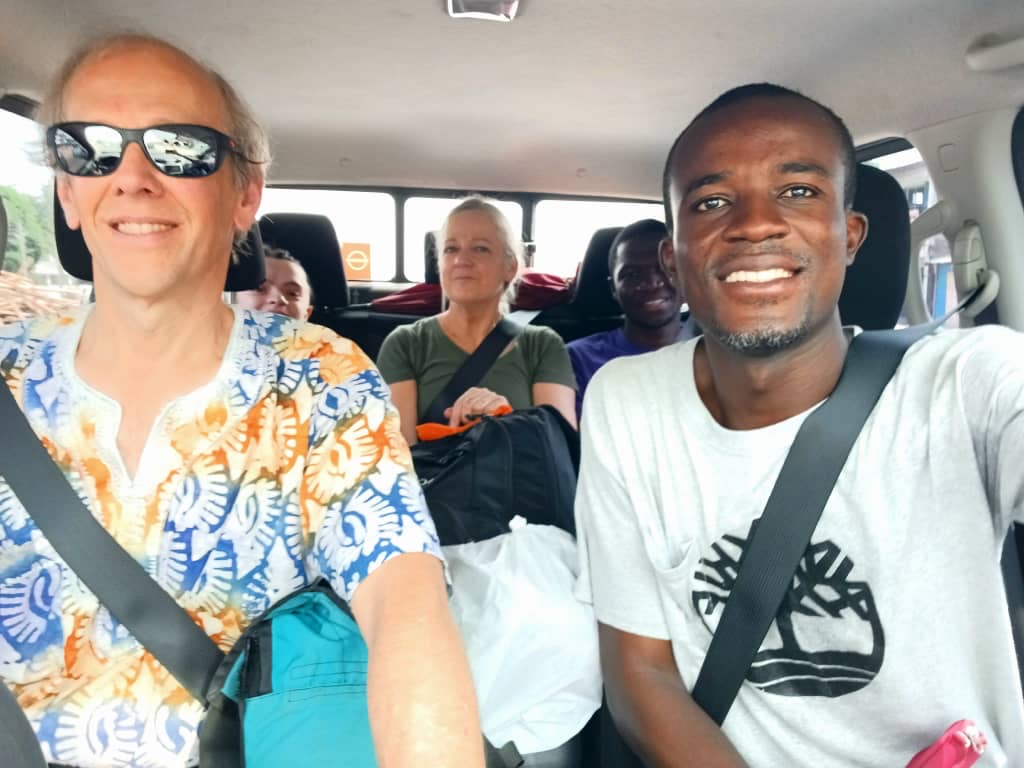
The police are working hard to restore peace to the Nkwanta area. The clashes between the Adele and Akyode had paused, but in town, the situation was still tense. On the main road, many of the shop owners had temporarily shut down. The city and surrounding farms are split between the two tribes, and lasting reconciliation remains elusive.
The military has wisely imposed an 8pm to 6am curfew. We pulled into Nkwanta through a final military checkpoint with soldiers in black balaclavas, and we drove into a quiet town.
We checked into the hotel, parking next to a Police Toyota LandCruiser. Jollof helped restore our fatigue, and we relaxed to discuss our plans for tomorrow and discuss the situation between the Adele and Akyode tribes. They need peace. The military could enforce separation, but hearts only change with forgiveness. I was reminded of the Matt Maher song with the lyrics “Love moves at the speed of forgiveness, one heart at a time”. Reconciliation and forgiveness are not the same as a pause in the conflict. Curfews and fear can enforce a cessation of conflict, but forgiveness is the only path to peace.
By 7:15, we were beginning to become concerned about Ray. He would not be allowed into the city after the curfew. But before long, he was smiling and sitting down at our dinner table to receive his jollof and help us make our way through our plans. By 8:00pm, the streets had become deserted; we welcomed the quiet — no lorries, no tooting yellow-yellows.
We wrapped up the evening by praying for the Adele and Akyode tribes. Maybe you would like to join us.
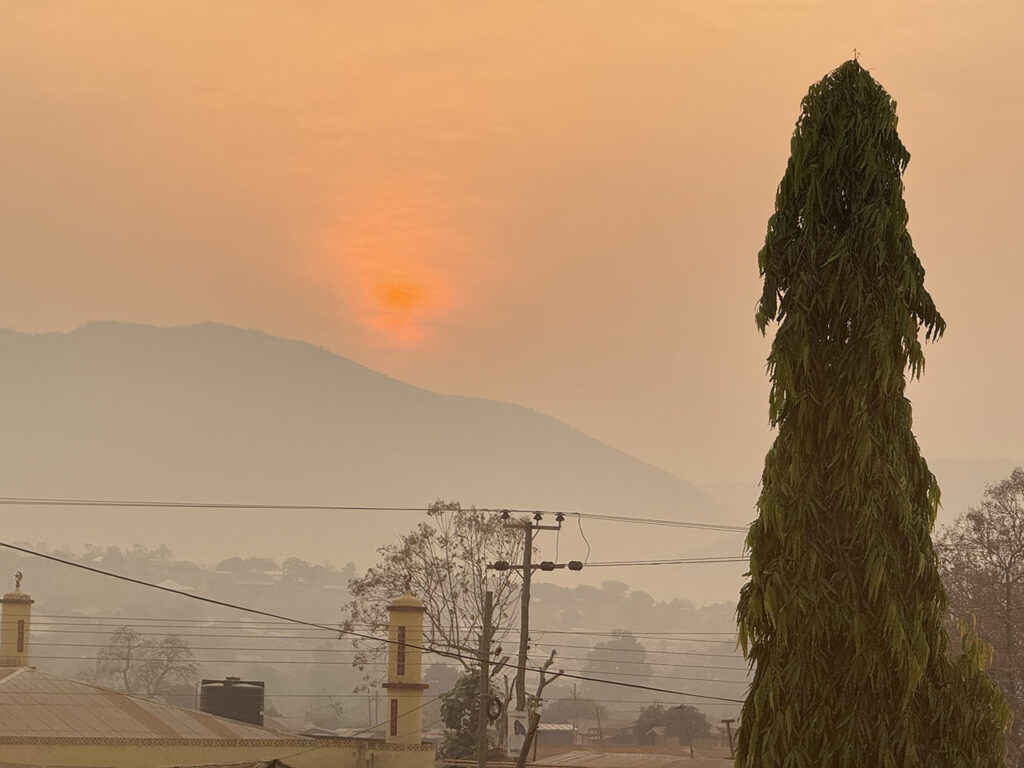
At 5:30am, I woke up quietly and made some instant coffee before configuring the gear we would use to record. At 6:00am, I heard my first car horn in the distance. I also realized that the roosters seemed to be obeying the curfew too. Nice! I peered out the window to see the sun rising over the mountains. Psalm 121 is a perfect verse for today.
While heading to breakfast, I saw a large, muscular man, maybe slightly taller than me. He wore a smartly decorated uniform, with white braids hanging from his broad and perfectly aligned shoulders. I approached and thanked him for his work. We chatted briefly. Remembering the LandCruiser I had seen in the hotel parking lot yesterday, I shared that I used to have the same vehicle that he was driving, and they are rugged and nice. He returned a puzzled gaze, saying, “I’m driving the armored vehicle”. I laughed and explained the mix-up. He smiled, and I went to breakfast. It will be a great day.

